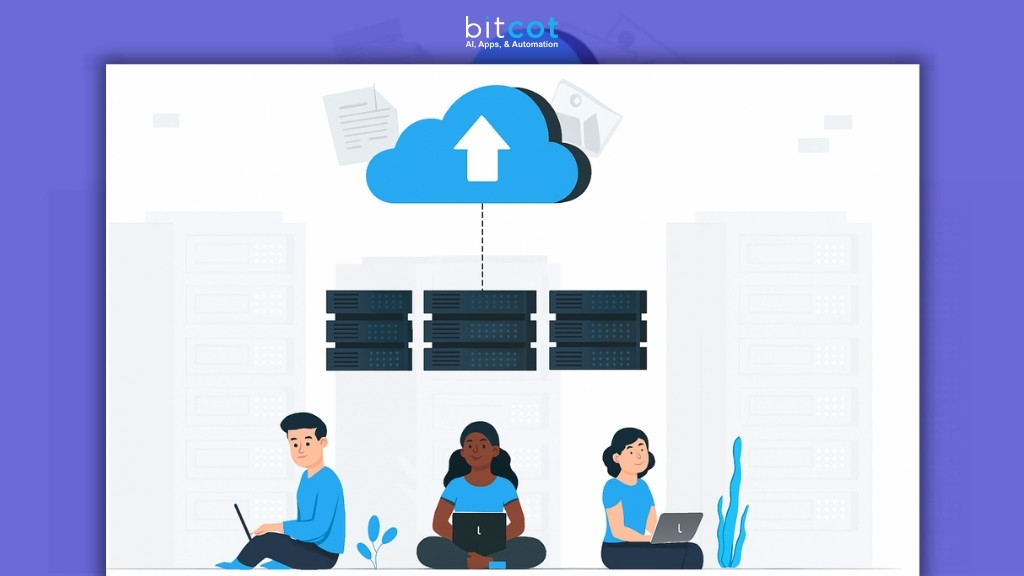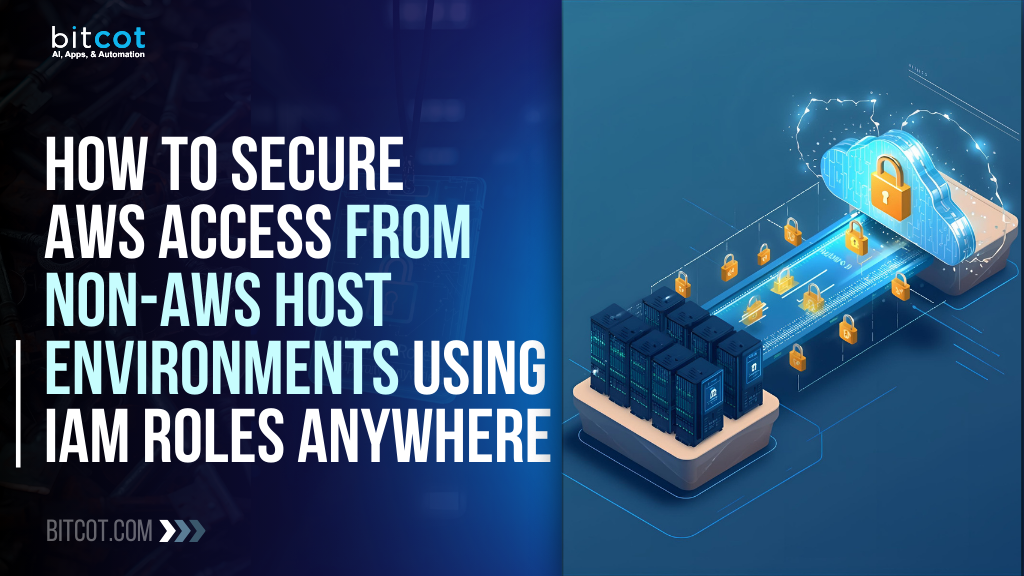
Are you still paying thousands for servers that sit idle 70% of the time?
If you’re nodding right now, you’re not alone. Thousands of American businesses are throwing money down the drain every single month, funding server farms that do absolutely nothing during off-peak hours. Meanwhile, your competitors who’ve embraced serverless architecture are laughing all the way to the bank.
Here’s the brutal truth that’s keeping business owners awake at night: The global serverless architecture market size was more than USD 19.42 billion in 2024 and is anticipated to grow at a CAGR of over 25.8%, reaching USD 383.79 billion revenue by 2037.
But why are so many companies making this shift? What do they know that you don’t?
The answer might shock you. While you’re paying full price for infrastructure you barely use, smart business owners are cutting costs by up to 90% and scaling faster than ever before. They’re launching products in weeks instead of months and handling traffic spikes without breaking a sweat.
Sound too good to be true? Here’s exactly what you’ll discover:
- What serverless really means and why the term is misleading
- The hidden costs killing profits and how serverless eliminates them
- Real case studies like Netflix saving millions
- Key benefits transforming American businesses today
- When to use serverless, when to avoid it, and which platform fits your needs
By the time you finish reading, you’ll understand exactly why serverless architecture isn’t just a tech trend but the competitive advantage that separates thriving businesses from those struggling to keep up.
Let’s dive in and discover how serverless can transform your business from a cost center into a profit machine.
What Is Serverless Architecture? (It’s Not What You Think)
 Before you roll your eyes thinking “another tech buzzword,” consider this. Serverless doesn’t mean there are no servers (that would be impossible, right?). It means you don’t have to worry about them anymore.
Before you roll your eyes thinking “another tech buzzword,” consider this. Serverless doesn’t mean there are no servers (that would be impossible, right?). It means you don’t have to worry about them anymore.
Think of it like this: Remember when you had to own a car to get around? Now you can just call an Uber. Serverless is the Uber of computing. You get exactly what you need, when you need it, and you only pay for the ride.
Instead of buying, maintaining, and babysitting servers 24/7, you let giants like AWS, Google Cloud, or Microsoft Azure handle all that headache. Your code runs in the cloud, scales automatically, and you pay only for what you actually use. No more, no less.
But why should you care? Because your bottom line depends on it, and here’s exactly how this technology is revolutionizing American businesses.
The Hidden Costs That Are Killing Your Profits (And How Serverless Fixes Them)
1. You’re Paying for Ghost Resources
Right now, you’re probably paying for servers that are doing absolutely nothing. It’s like paying rent for empty apartments. Traditional servers need to be sized for peak traffic, meaning you’re paying 100% for resources you might only use 30% of the time.
Serverless solution: Pay only when your code actually runs. No idle time charges, no wasted resources. Companies like Heavywater cut their backend costs from $4,000 to just $30 per month. Yes, you read that right.
2. Your Development Team is Stuck in Maintenance Hell
How much time do your developers spend actually building new features versus maintaining servers, updating security patches, and troubleshooting infrastructure? If you’re honest, it’s probably depressing.
Serverless solution: Your team focuses 100% on building features that make money. No server maintenance, no infrastructure headaches, no 3 AM emergency calls about crashed servers.
3. Scaling Nightmares Are Costing You Customers
Remember the last time your website crashed during a flash sale? Or when your app became sluggish because too many people tried to use it at once? Every minute of downtime is money walking out the door.
Serverless solution: Automatic scaling that happens in milliseconds. Your app handles one user or one million users with the same ease. Netflix processes billions of requests this way – if it’s good enough for them, it’s good enough for you.
The numbers don’t lie, and they’re about to get even more compelling…
The Shocking Truth About What Your Competitors Are Achieving
Let’s talk real numbers from real companies, because this isn’t theory – it’s happening right now:
Netflix: The Streaming Giant’s Secret Weapon
Netflix doesn’t just stream videos; they revolutionized how content gets delivered. Using AWS serverless architecture, they process thousands of files daily, automatically sorting and encoding them into 60 different streams. The result? Seamless viewing experience for 230+ million subscribers worldwide, with costs that scale perfectly with demand.
Nordstrom: Retail Innovation at Its Finest
This isn’t your grandmother’s department store anymore. Nordstrom slashed their time-to-market by 50% using serverless architecture. They can now respond to fashion trends in real-time, deploy new features instantly, and handle Black Friday traffic without breaking a sweat.
Coca-Cola: Smart Vending Meets Smart Business
Even Coca-Cola’s vending machines run on serverless technology. Every purchase triggers serverless functions that process payments, update inventory, and provide valuable consumer insights. The result? Better customer experience and data-driven business decisions.
But here’s what really matters – how does this translate to dollars and cents for your business?
Serverless Computing Benefits That Will Transform Your Business
Lightning-Fast Customer Experience
Your customers expect everything instantly. Amazon spoiled them, and there’s no going back. Serverless architecture reduces latency dramatically because your code runs from servers closest to your users. Faster load times = happier customers = more sales. It’s that simple.
Mobile-First Without the Headaches
Your customers live on their phones. According to the U.S Bureau of Labor Statistics, software developers employment is expected to grow 17.9 percent from 2023 to 2033, much faster than average for all occupations. Serverless makes mobile app development faster, cheaper, and more reliable. You can launch that mobile app you’ve been talking about for months, not years.
Bulletproof Scalability
Remember when Instagram sold for $1 billion with just 13 employees? That’s the power of scalable architecture. With serverless, your app can grow from startup to unicorn without rebuilding your entire infrastructure.
Crystal-Clear Cost Tracking
No more surprise bills or budget overruns. With serverless, you see exactly what you’re paying for and when. Every function call is tracked, every resource usage is measured. This transparency helps you optimize costs and make smarter business decisions. For enterprise-level businesses looking for comprehensive solutions, explore our specialized AWS serverless applications development services designed for large-scale implementations.
Now you might be wondering: “This sounds too good to be true. What’s the catch?”
Top 3 Serverless Platforms in 2025 (And Which One is Right for You)
Amazon Web Services (AWS Lambda): The Heavyweight Champion
AWS Lambda isn’t just popular – it’s the industry standard. With over 400,000 developers using it monthly, it offers unmatched reliability and integration options. If you’re ready to dive deeper, learn exactly how to build serverless applications using AWS services with a step-by-step approach. Best for: Businesses already using AWS services or those needing maximum flexibility.
Google Cloud Functions: The Speed Demon
Google’s offering excels in machine learning integration and BigQuery analytics. If your business relies on data insights and AI-powered features, this might be your golden ticket. Best for: Data-driven companies and AI-forward businesses.
Microsoft Azure Functions: The Enterprise Favorite
Azure Functions speaks enterprise language fluently. It supports multiple programming languages and integrates seamlessly with Microsoft’s ecosystem. Best for: Companies already invested in Microsoft tools or needing enterprise-grade compliance.
But choosing the platform is just the beginning. Here’s what you need to know about implementation…
When to Use Serverless Architecture (And When to Avoid It)
You SHOULD Go Serverless If:
- Your traffic is unpredictable (seasonal business, viral content potential)
- You want to focus on features, not infrastructure
- Your development budget is tight
- You need to scale fast without huge upfront investment
- Your app has long periods of inactivity
You Should Think Twice If:
- You need real-time, always-on connections (like gaming or trading platforms)
- You have highly predictable, constant traffic
- Your app requires specialized hardware configurations
- You’re dealing with extremely sensitive data requiring physical server control
The key is being honest about your business needs and growth trajectory.
Why Serverless Architecture is the Future of Business Technology
Here’s what we know for sure: The Serverless Computing Market is projected to register a CAGR of 23.17% during the forecast period (2025-2030) This isn’t a trend. It’s a fundamental shift in how successful businesses operate.
The question isn’t whether serverless architecture will dominate the future. It’s whether you’ll be part of that future or left behind watching your competitors eat your lunch.
Every day you delay is another day your competitors gain advantage. Every month you overpay for idle servers is money that could fuel your growth instead.
The businesses winning today aren’t necessarily the ones with the best ideas. They’re the ones with the best execution and the smartest infrastructure choices.
Whether you’re just starting your serverless journey or need enterprise-grade implementation, having the right development partner makes all the difference in execution speed and success.
Ready to Stop Wasting Money and Start Growing Fast?
The serverless revolution isn’t coming. It’s here. And it’s time to decide: Will you lead this transformation in your industry, or will you let someone else do it first?
Your competitors are already making this move. Your customers are already expecting the speed and reliability that serverless enables. Your bottom line is already suffering from inefficient infrastructure spending.
The only question left is: What are you waiting for?
If you’re ready to transform your business with serverless architecture, join thousands of forward-thinking companies who’ve already made the switch. Your future self (and your bank account) will thank you.
Don’t let another month pass paying for resources you don’t use while your competitors race ahead with lean, mean, serverless machines.
Ready to make the switch? Partner with BitCot’s serverless experts and transform your business infrastructure in weeks, not months.












